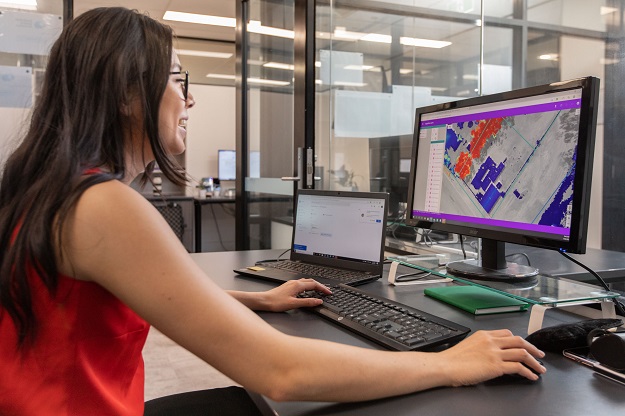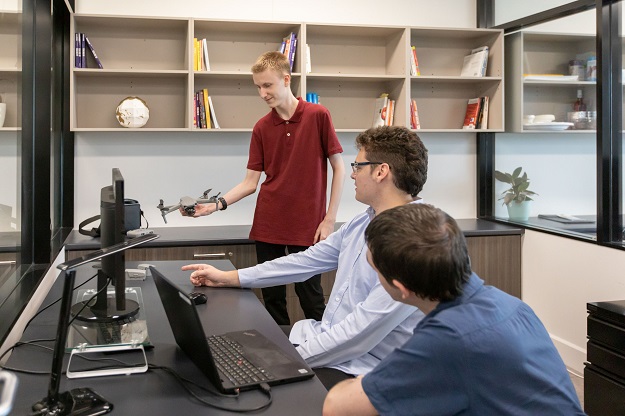
ASA’s team members bring remarkable talents to their analytics work.
Australian Spatial Analytics is a not-for-profit that trains and employs people on the autism spectrum.
Australian Spatial Analytics (ASA) is a Brisbane-based data processing and analytics service provider with a difference — it is also a not-for-profit social enterprise that trains and employs people on the autism spectrum. Currently the only Social Traders-certified data analytics company in Australia, it has 25 staff (and growing), 19 of whom live with autism.
“This is a social enterprise that embraces the strengths of a highly underemployed cohort,” said ASA’s general manager, Geoffrey Smith. “Our data analysts on the autism spectrum hold exceptional cognitive talents in visual pattern recognition, memory retention and concentration. Their ability to lock-in and concentrate on data problems is incredible. They are faster and more precise analysts.”
According to Smith, more than $1 billion of spatial analysis was offshored by Australian companies in 2019. “This work is increasingly needed to be carried out onshore to mitigate data sovereign risk and improve customer service,” he said. “With the Critical Information Security Act passed in 2018 and rising geopolitical tensions, it is time for our infrastructure to be analysed within Australia’s borders. ASA provides government and corporations a new local outsourcing alternative.”
The majority ASA’s team members are not trained geospatial professionals — the company has geospatial and data advisors who train the analysts to conduct their work and advise on the best ways in which to achieve project outcomes. Most of the analysts perform relatively basic GIS tasks, however some have experience in IT and programming.

ASA tackles a wide variety of geospatial projects.
ASA’s team has taken on a wide variety of projects, for instance asset location and management for one high-voltage electrical network operator and predictive analytics/BI for another such operator. They’ve also tackled a multitude of mapping projects, from farm and paddock locations to fibre optic networks in the suburbs, to deep intelligence and machine learning (identifying rubbish on beaches, swimming pools and changes in vegetation), to georeferencing and geolocation work to create orthomosaics.
ASA is in the process of applying for grants for training and extra support for its team. “Some of our analysts were referred through the federal employment program and therefore can accrue wage subsidies for our social enterprise. These wage subsidies are no different from what any other business can receive,” said Smith, adding that “ASA would not exist without the support of social enterprise builder, White Box Enterprises.”
“You’re missing out if you don’t consider neurodiverse people,” he said. “Mainstream employers are profoundly missing out on fantastic employees.”
This article was first published in Issue 114 (Aug/Sep 2021) of Position magazine.
Stay up to date by getting stories like this delivered to your inbox.
Sign up to receive our free weekly Spatial Source newsletter.







